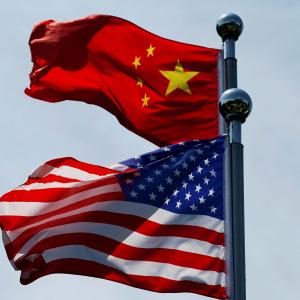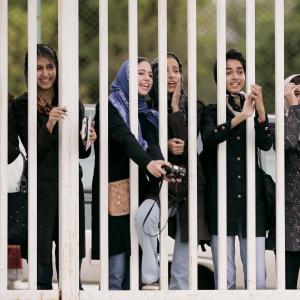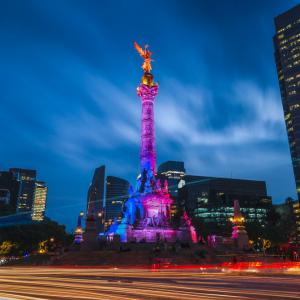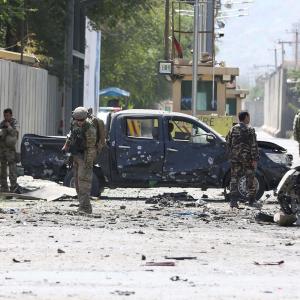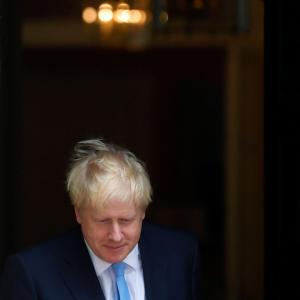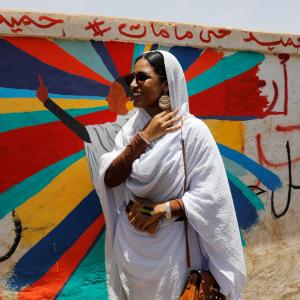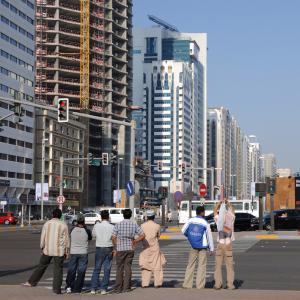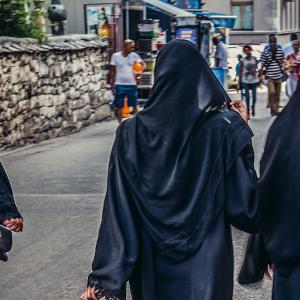
Rishika Pardikar is a freelance journalist writing from Bangalore, India.
Posts By This Author
Fake News and the Politicization of Science Could 'Cost Lives'
Communication between scientists in China and scientists in the U.S. has essentially shut down, eliminating opportunities for the U.S. to learn from China’s response to the virus.
The Trump Administration's Attempt to 'Greenwash' Environmental Neglect
The One Trillion Trees Initiative, launched by the World Economic Forum and led by led by the U.N. Environment Programme and the Food and Agriculture Organization, is, as its name implies, an afforestation/reforestation effort. It was designed to support the U.N. Decade on Ecosystem Restoration 2021-2030 announced in March 2019, offered as a “proven measure to fight the climate crisis and enhance food security, water supply and biodiversity.”
The Far-Reaching Effects of Trump’s Expanded Travel Ban
Last week, just days before he addresses the nation in the State of the Union speech, President Donald Trump signed a proclamation that placed restrictions on nationals from Myanmar, Eritrea, Kyrgyzstan, Nigeria, Sudan, and Tanzania from traveling to the United States. The Department of Homeland Security said the restrictions will go into effect Feb. 21.
In Iran, Watching Soccer Is Part of Women's Fight for Equality
In 1981, three years after Iran’s Islamic Revolution, women were banned from entering soccer stadiums in the country.
On October 10, 2019, after 40 years of protest, women in Iran were finally allowed to buy tickets and attend a soccer match. Iran was playing against Cambodia in Azadi Stadium.
'Glitter Revolution' in Mexico Demands Safety for Women
In the last few weeks of August 2019, women in Mexico City joined the 'revolución diamantina’ (glitter revolution), expressing their anger over institutionalized violence against women. Armed with pink glitter, the protesters rallied in the streets, chanting,“They don’t protect us, they rape us.”
Trump Pauses Peace Negotiations in Afghanistan Amid Civilian Casualties
As the U.S. grows closer to a peace deal with the Taliban and prepares to withdraw 5,000 troops from Afghanistan, experts remind us that until the civilian death toll stops, peace on the ground remains a dream.
Boris Johnson And the Rights of Marginalized Communities in the U.K.
Mahmood explained that issues such as increasing wealth inequality, and the scapegoating of migrants and refugees, set against the backdrop of the migration ‘crisis’, have led to increasing hostility and incidents of hate crime under the Tories — majority white (97 per cent) and male (71 percent) — members or supporters of U.K.’s Conservative Party.
Women Lead Sudan's Battle for Regime Change
The Sudanese revolution is half-complete. On April 12, merely 24-hours after they had gotten rid of Omar al-Bashir, their dictator of 30 years, the Sudanese people were still out on the streets. They are out today too.
Where Are Afghan Women in U.S.-Taliban Peace Talks?
Late last month, it was reported that the U.S. and the Taliban have agreed in principle to the framework of a deal that could potentially end the 17-year war that began in 2001 when the U.S., with the strength of NATO forces, invaded and began occupying Afghanistan. In the lead up to war, leaders cited concerns about human rights, specifically women’s rights.
Diversity in the House Has Spurred Change. But There's a Long Way to Go
On Jan. 3rd when Ilhan Omar, a Democrat from Minnesota, assumed office as a member of the House of Representatives, she became the first Somali-American woman, the first Minnesotan of color, and one of the first two Muslim women elected to Congress.
#EleNão Movement Counters 'Brazilian Trump' Ahead of Presidential Election
Brazil’s 2018 presidential elections are scheduled to go into a second round Oct. 28, with Jair Bolsonaro squaring off against Fernando Haddad after they secured the most number of votes but failed to meet the 50 percent threshold in the Oct. 7 election.
Correcting the Narrative of Faith vs. Science: Q&A with Vatican Observatory's Richard D'Souza
Richard D'Souza and Eric Bell of the University of Michigan recently grabbed headlines for their discovery: The Milky Way once had a ‘sibling,’ which was devoured by the neighboring galaxy of Andromeda about 2 billion years ago. Their study, published in the Nature Astronomy journal last month, has its implications on the understanding of how galaxies evolve over time. D'Souza, the lead author of the study, hails from the Indian state of Goa and interestingly, he is also a staff member of the Vatican Observatory, an astronomical research institute supported by the Roman Catholic Church.
'The Laws Haven't Changed. But This Administration's Policies Have Changed'
“The Bible tells us, in numerous places, to care for the foreigner and stranger among us. As those who were once ‘aliens’ from the family of God and have now been given full citizenship through the blood of Christ, we should, of all people advocate for the flourishing and welfare for refugees,” said Elizabeth Bristow, Press Secretary at The Ethics & Religious Liberty Commission of the Southern Baptist Convention. “We should see those settling into our communities, not as obstacles to our flourishing, but people created in the image of God."
‘Wild Wild Country’ and the Dangers of Extremism
But outsiders, especially conservative Christian neighbors, considered the Rajneeshees a threat. In Wild Wild Country, we see Osho speak to his followers of “an awakened man,” and meditation as a means of attaining higher levels of awareness. His seemingly revolutionary way to sainthood, which rested on being spiritual without having to isolate or reject human needs, had a profound effect on his devotees, and soon his stature grew to resemble that of a rockstar. Neighbors around Rajneeshpuram felt they were being too quickly outnumbered. And they were — they lost elections, as well as the city council.
Rationalizing the Wealth Gap Away

Dutourdumonde Photography / Shutterstock.com
We all know there is a chasm dividing the vast majority of Americans from the very richest — and leaders across the political spectrum will admit that it’s a problem. What are distinct, of course, are the policies being drafted to bridge the divide. Shortly after the election of President Donald Trump, House Speaker Paul Ryan (R-Wis.) presented “A Better Way,” touted as an anti-poverty plan. “Our welfare system is rigged to replace work, not encourage work,” says Ryan, and the only way to tackle such challenges is supposedly to “reward work.”
How the United Arab Emirates, a Country of 90 Percent Immigrants, Handles Immigration
Countries in the Gulf States have some of the highest levels of immigration as a percentage of their population in the world.
78 Years Later, ‘The Grapes of Wrath’ Is Just As Timely As Ever
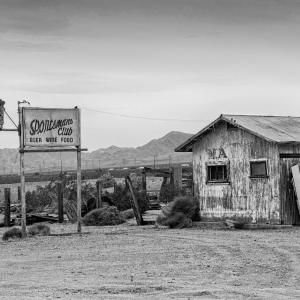
Abandoned diner along highway The Grapes of Wrath's "Mother road," Route 66 in Mojave desert on April 6, 2010. Rolf_52 / Shutterstock.com
Seventy-eight years ago, John Steinbeck published The Grapes of Wrath. It’s since become a staple in high-school curricula, offering a glimpse into our nation’s troubled history. But its lessons are just as applicable today in our hyper-polarized climate, in which empathy is often found lacking.
The Importance of Presidential Rhetoric
As I listened to President Donald Trump’s inaugural address on Friday, I couldn’t help but be reminded me of a book titled The Anti-Intellectual Presidency by Elvin T Lim.
We Can't End Extreme Poverty Without Addressing These 2 Things
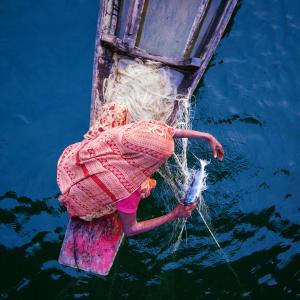
Image via StanislavBeloglazov/Shutterstock.com
In the wake of Jim Yong Kim’s visit to the country, the World Bank’s future efforts should provide for coordinated global efforts to cope with climate change, especially to help those who live in areas most vulnerable to extreme weather. Future efforts should also provide research in agriculture, funding in education and health facilities, and directions to establish clear labour laws to regulate the booming industrial sector.
The Politics of the Burqa: When Will Women Have Their Say?
Duing the Rio Olympics, images of Egypt’s athletes in full-body spandex (with player Doaa Elghobashy also wearing a hijab) competing against Germany’s bikini-clad team quickly swept through the internet. It’s only been since the 2012 London Olympics that relaxed rules allowed for such diversity of clothing. The photographs echoed narratives of cultural freedom and showed how opposites can sometimes coexist quite peacefully.
